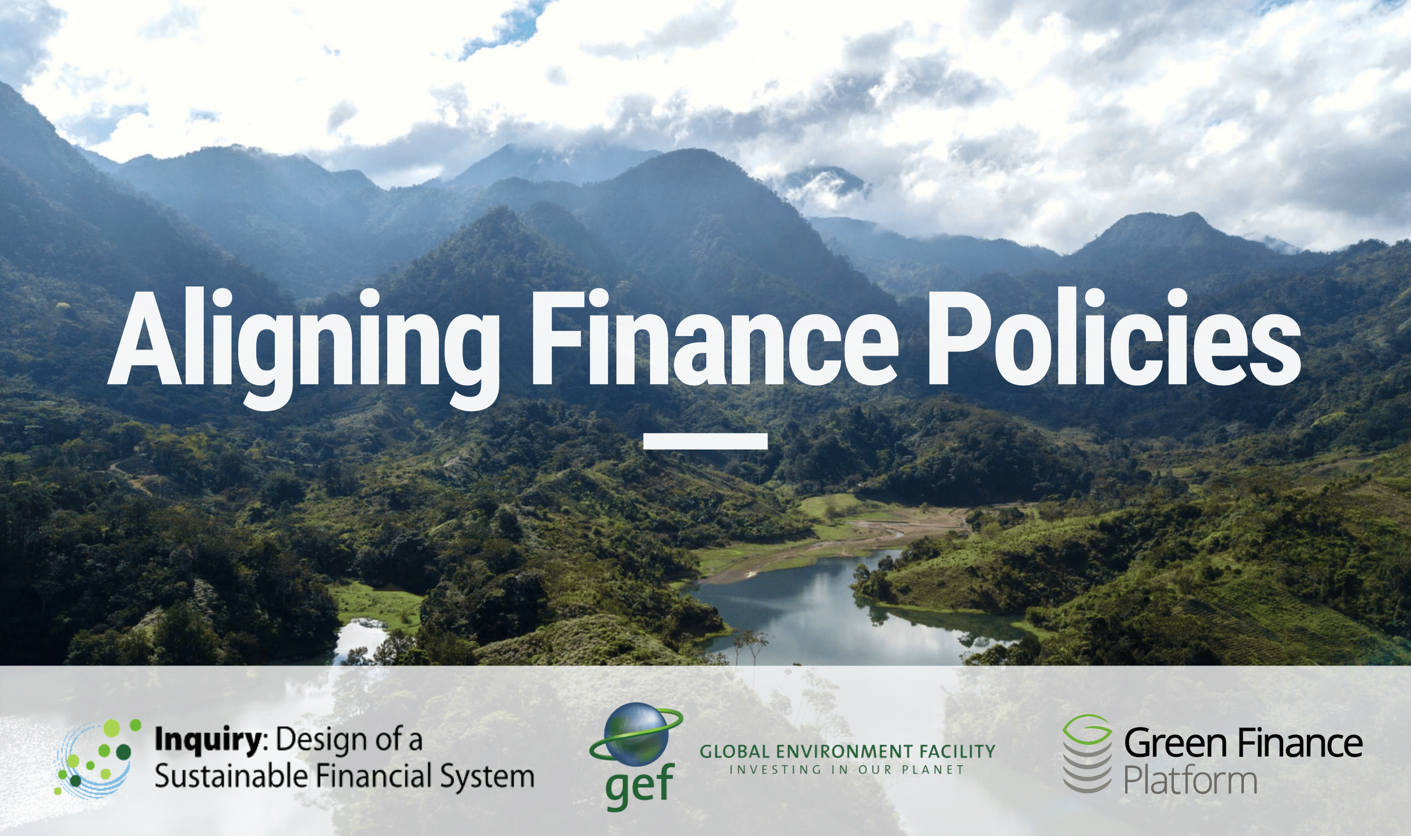Green Finance Platform
Description
The Green Finance Platform (GFP) is a global network of organizations and experts that address major knowledge gaps in sustainable finance.
Green Growth Knowledge Partnership (GGKP) is a global community of policy, business, and finance professionals and organizations committed to generating, managing, and sharing knowledge collaboratively on the transition to an inclusive green economy.
The GGKP's three knowledge platforms – the Green Policy Platform, Green Industry Platform, and Green Finance Platform – enable policymakers and advisors, small and medium-sized enterprises (SMEs), and banks, insurance, and investment firms to make evidence-based decisions regarding how to green their operations. Webinars, courses, and academic programs are also featured on the platforms to facilitate green growth professionals' ongoing education and capacity building.
The GGKP facilitates engagement on knowledge and learning through the Green Forum – an online interactive community space for professionals to share and discuss insights in the pursuit of a sustainable economic transition. The Green Forum features discussions on global issues and the ability for users to form specialized groups centered on particular topics, initiatives, and projects.

Gallery

Classifications
Scale of implementation
The Green Finance Platform is one of the three knowledge platforms of the Green Knowledge Partnership (GGKP), a global community of policy, business and finance professionals, offering quick and easy access to the latest research, case studies, guidance, and tools. Users can browse knowledge by 193 countries, 6 regions and 49 sectors and themes.
Type
Green Finance Platform is an online Platform accessible through a web browser.
Phase of solution
The Platform offers a multilateral forum of dialogue between policymakers that are in charge of developing sustainable finance regulatory measures to help investors identify and seize sustainable investment opportunities that truly contribute to climate and environmental objectives. Members can exchange and disseminate information to promote best practices, compare their different initiatives and identify barriers and opportunities of sustainable finance.
Target audience
This platform and data are utilized by national policy makers, industry players, financers, developers, research consultancies, RES associations, chambers of commerce, etc.
Key features-functionality
The Green Finance Platform you mentioned is a valuable resource for information and tools related to green and sustainable finance, as well as various aspects of environmental and climate-related topics. Here's a breakdown of the types of information and resources it provides:
-
Policies and Regulations: The platform offers information on policies and regulations related to green and sustainable finance. This includes guidelines, laws, and regulations that govern environmentally responsible investment and financial activities.
-
Climate Change: Information related to climate change is likely to include data on climate science, the impact of climate change on various sectors, and strategies for mitigating and adapting to climate change.
-
Agriculture: Information on agriculture cover sustainable farming practices, the impact of agriculture on the environment, and investment opportunities in sustainable agriculture.
-
Energy: This section would likely provide insights into renewable energy sources, energy efficiency, and clean energy investment opportunities. It may also cover policy initiatives and market trends in the energy sector.
-
Forestry: Information related to forestry would likely focus on sustainable forestry practices, forest conservation, and investment opportunities in the forestry sector.
-
Water: Information on water include issues related to water scarcity, water management, and sustainable water resource investments.
-
Annual Reports: Annual reports often provide a comprehensive overview of the platform's activities, achievements, and key findings related to green finance and sustainability.
-
Diagnostic Toolkits: Diagnostic toolkits are likely practical resources designed to help users assess the sustainability and environmental impact of financial activities or investments.
-
Case Studies: Case studies provide real-world examples of successful green finance initiatives and sustainable investment projects. They can serve as valuable learning resources for investors and policymakers.
-
Energy Climate Scenario Catalogues: These catalogs provide scenarios and projections related to the energy sector under various climate and sustainability scenarios, helping stakeholders make informed decisions.
-
Climate Databases: Climate databases could include extensive collections of data related to climate change, environmental indicators, and other relevant metrics.
-
System Maps: System maps offer visual representations of complex environmental and financial systems, helping users understand the interconnections and dependencies within these systems.
-
Financial Measures Database: This database contain information about financial instruments and measures used to support green and sustainable investments, such as green bonds, sustainability-linked loans, and subsidies for renewable energy projects.
References & Sources for Further Reading
- The Green Finance Platform: https://www.greenfinanceplatform.org/
